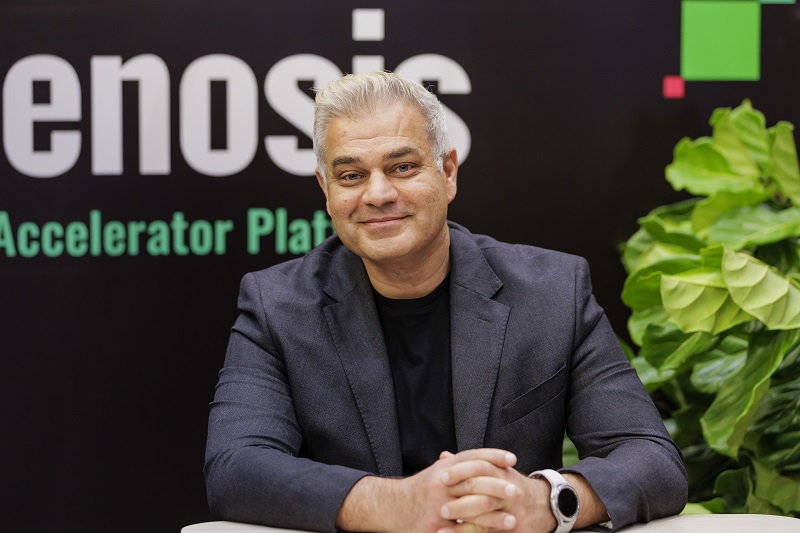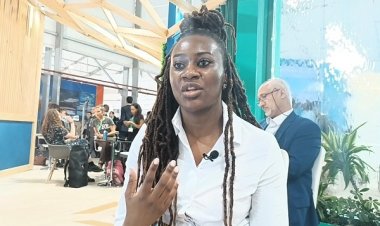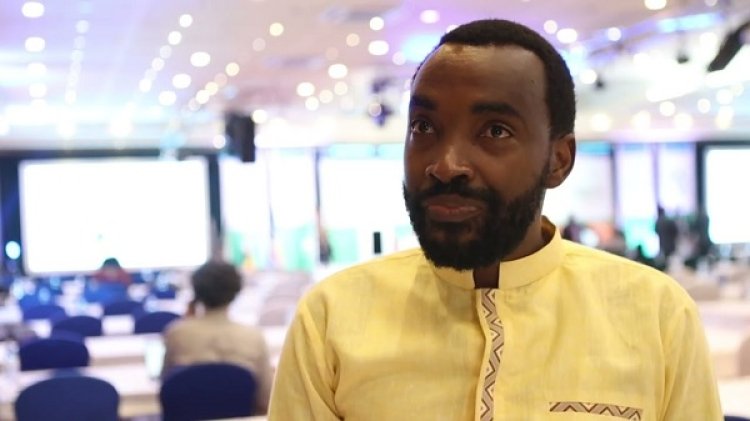Did you know you can build an app and any other web-based project without necessarily hiring a developer or knowing the programming language?
As long as you can use a digital device or a mobile phone, there are platforms that give you access to tools that allow you to join the emerging league of citizen developers also known as no code developers.
Chenosis, a South Africa-based Pan-African developer accelerator platform is one of those furnishing people with toolbox to build and design tech solutions to a wide range of real-world problems spanning across sectors such as health, transport, education, agriculture and finance, among others.
The techco’s Chief Executive Mr. Saad Syed says no code development promises to plug the acute shortage of developers on the continent, and could help save money African countries spend on outsourcing tech solutions.
He talked to NewsPaper Africa‘s Johnson Kanamugire on the sidelines of Mobile World Congress in Kigali this week. He shares about the power of coding in Africa, current needs, challenges and what the future looks like in light of the fourth industrial revolution.
Below are excerpts
——
You are of the view that anyone can build an app without prior IT skills or the help of a developer, how does it work?
As Chenosis, we are saying that if you have a great idea and you want to build a mobile application, you don’t have to either learn how to code or find someone who can code. You can use our platform and build your app in a really simple way. That why we are saying that the future of coding is no code.
The future of code is actually going to an interface and building the aesthetics of your mobile app… Like this is what my mobile app looks like, this is the user journey, these are the things you click on, and this is the content you get back.
Also read: Africa’s digital divide not shrinking, Govts face a long road ahead
You build that without writing a line of code, almost like you build a presentation slide. And then the second thing is with the power of API (Application Programming Interface), you can now ingest data or services, which enhance and enrich your application.
So, for example, if I build an app which requires facial recognition, rather than me writing the code for facial recognition, I can call an API which then invokes that facial recognition code, and I’ve got that capability in my app.
So technology is now allowing us, for anyone, a citizen developer to build a mobile app and build a an e-commerce site or a website without writing code.
What impact will that make when you look at Africa’s current coding landscape?
There’s something like 700,000 developers across Africa. Google did some research and this is the 2020 data. So it’s probably more now serving 1.3 billion population of Africa. If you look at other places like America, the number is 4.4 million developers serving a population of 320 million.
Now, what we can do is we could drive campaigns and initiatives to teach people how to code, and that’s what we are trying to do at Chenosis. And we’re trying to create this concept of everyone a coder.
We think we can go from 700,000 developers to 70 million individuals who are building outcomes, but without writing code.
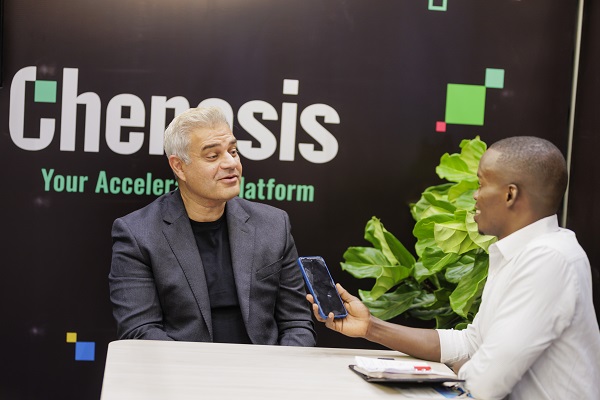
700,000 developers for over a billion population: What explains the low number?
We have challenges in Africa. There’s access to education, access to information and devices to code on, the opportunity to financial availability to run these training courses. They can be expensive. You know, you need to do a software engineering degree, you need to go to university, you need to find funds for that.
That’s one of the big challenges why the numbers are quite low. And the other thing that happens as well is we see this quite a bit where when we have these super smart Africans who are acquiring this capability, there’s a bit of a brain drain.
These people unfortunately end up leaving Africa and I don’t blame them. They have access to income generation from outside of Africa, which is going to change their lives. So they end up going to the US or to Europe or to places outside of Africa so we lose that talent.
We think we can go from 700,000 developers to 70 million individuals who are building outcomes, but without writing code.
Saad Syed, Chief Executive Officer, Chenosis
Can this brain drain trend be reversed? It’s bad, right?
Yeah, it is. What we’re saying is, we can spend money and teach people how to code. Then we retain the smart people because they become successful in Africa. So that’s number one.
If we’re also able to build self-sufficiency in building apps and outcomes, then there’s a reduction in how much we spend outside of Africa. That money stays in Africa, then there’s opportunities for smart people in Africa. And maybe that’s how we kind of give opportunities to smart young Africans so they don’t need to leave Africa to be successful.
Do you think the environment is conducive for a no code future?
We obviously hope it is, but there are a number of different factors. So let’s look at both sides of the coin. So one of the big things in Africa is the demographic trends… The percentage of youth population, by 2050 the big bulk of youth globally is going to be here in Africa.
And if you think about it, we’re going to have like this mass of young, aspirational, smart talents. What are they going to do? Number two, we’re going to see the growth of internet access and the proliferation of smart devices will grow as well. I think the timing is gonna be good as well.
People talk about the fourth industrial revolution, and that is really about software. It’s about going digital if you like and digital is all about applications… It’s either an app on my device or an e-commerce site, which is all software based.
So if you can build those outcomes without writing code, I think, it facilitates, That’s our hypothesis for building the business and scaling it.
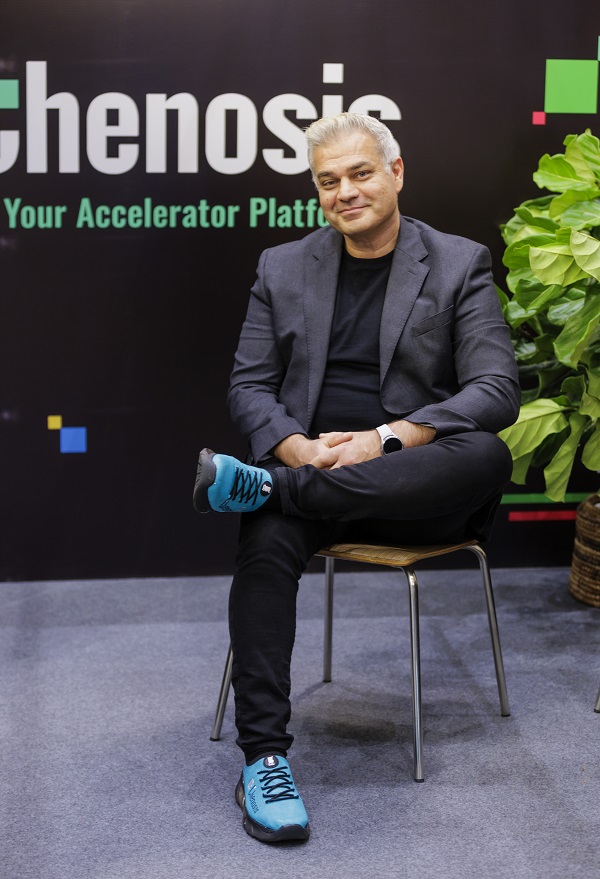
Where do you position Africa when it comes to the ability to stop outsourcing
tech solutions?
I’m such a firm believer in the talent potential of this continent. I think there’s super smart people who can build amazing things. So the answer to your question very quickly, if we can provide the tools to build code and drive these outcomes to as many Africans as possible I think us needing to import that capability and outsource will start to disappear, and I think we’ll become more self-sufficient in what is going to be the biggest industry over the next few years.
And if we can do that at scale, then organizations having to outsource big software development projects outside of Africa will have access to people who can use the platforms to build the outcomes they want. And maybe even Africa becomes the outsourcer to the rest of the world for these capabilities. And it’s already starting to happen.

